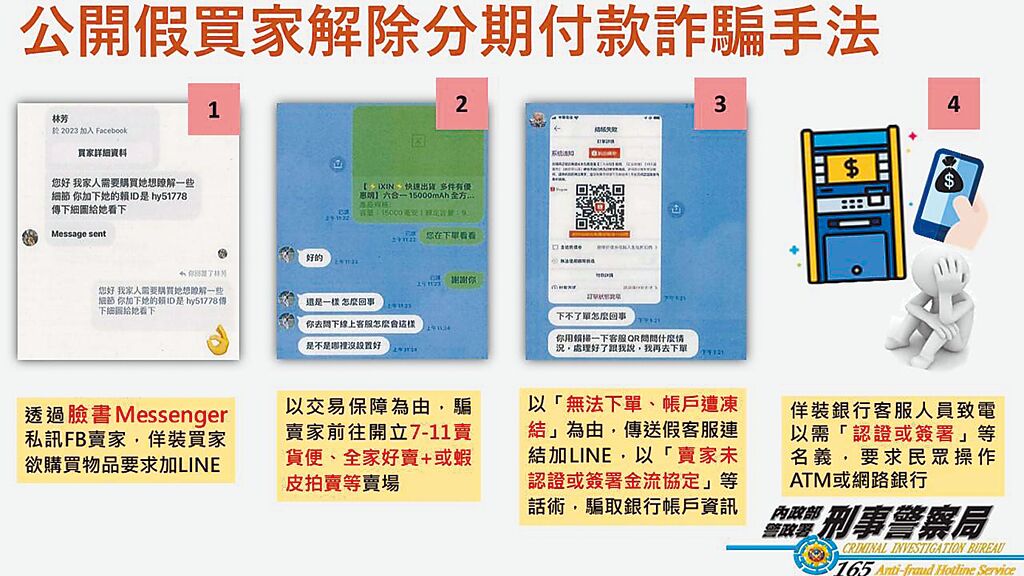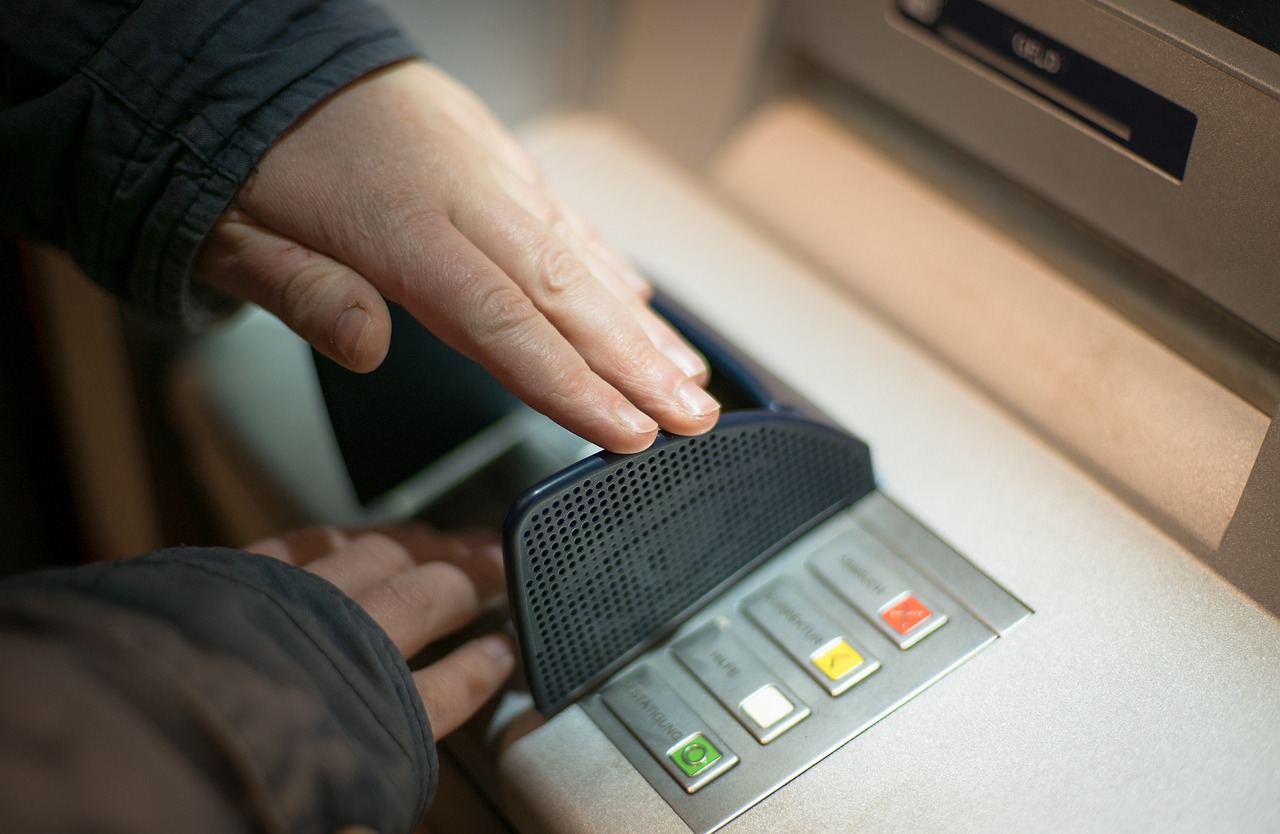Cases of online shopping fraud using "fake buyers" have been on the rise lately, according to the Criminal Investigation Bureau's Anti-Fraud Center. In the past, merchants would "take money but not deliver the goods," which would leave consumers deceived and lead to online shopping frauds. There are new ways that impostor purchasers might trick vendors these days. By "cancelling the installment payment" and other means, the purchasers ultimately deceive the sellers.

New techniques for fraud: "fake buyers" are now rife on the Internet.Photo provided by Criminal Investigation Bureau
The police said that a buyer on Facebook sent a private message to a lady going by the name of Hong, expressing her desire to purchase NT$500 worth of products the woman was selling on Facebook. Additionally, the customer recommended selling the items at 7-11 sells goods (賣貨便). Hong gave the customer access to the product URL. The customer, however, claimed that "the order could not be placed, and the account was frozen," so the customer gave Hong a phony link to customer support. Unacquainted with the shop system, Hong complied with the customer’s instructions to add the counterfeit LINE customer support.
Hong was informed by the phony customer service that she was unable to utilize the 7-11 sells goods (賣貨便) as she "had not yet verified." She had to provide Hong the details of her personal bank account and request that she send money to her using online banking. It wasn't until the next day that Hong realized she had been duped and lost a grand total of 30,000 dollars.
To prevent being tricked by disclosing personal information, the authorities advise online retailers not to join LINE customer service through unidentified sources or click on phishing URLs.







